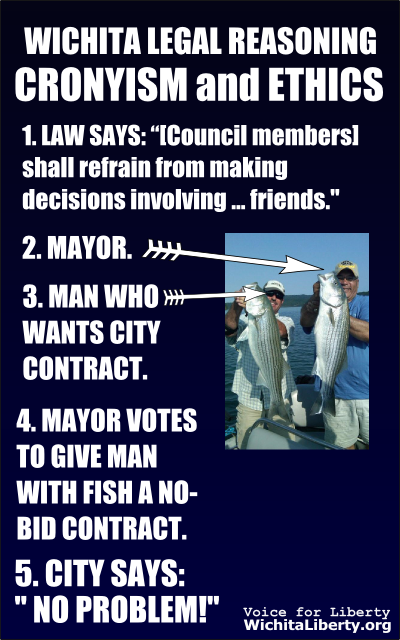Tag: Government ethics
-

Say no to Kansas taxpayer-funded campaigning
Kansas taxpayers should know their tax dollars are helping staff campaigns for political office.
-

Wichita city council campaign finance reform
Some citizen activists and Wichita city council members believe that a single $500 campaign contribution from a corporation has a corrupting influence. But stacking dozens of the same $500 contributions from executives and spouses of the same corporation? Not a problem.
-

Exchange Place incentives, including free sales tax and an ethics bypass
A downtown Wichita project receives free sales taxes and a bypass of Wichita’s code of conduct for city council members.
-
The odd ethics of Wichita Mayor Carl Brewer
The Wichita city council should repeal a law that the council doesn’t follow.
-

Will the next Wichita mayor advocate enforcing our ethics laws?
Wichita has laws that seem clear. But the city attorney said they don’t mean what they seem to say. Will our next mayor stand up for ethics?
-

For Wichita sales tax, concern over conflicts of interest
Supporters of a proposed sales tax in Wichita promise there will be no conflicts of interest when making spending decisions. That would be a welcome departure from present city practice.
-

WichitaLiberty.TV: The harm of cronyism, local and national
Does Wichita have a problem with cronyism? The mayor, city council, and bureaucrats say no, but you can decide for yourself. Then, from LearnLiberty.org, the harm of cronyism at the national level.
-
Is there a problem in Wichita?
Does Wichita have a problem with cronyism? The mayor, city council, and bureaucrats say no, but you can decide for yourself.
-

Questions for the next Wichita city attorney: Number 3
Will the next Wichita city attorney advise council members to refrain from making decisions worth millions to their friends and significant campaign contributors?